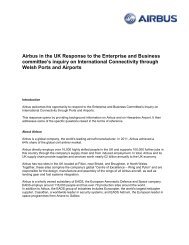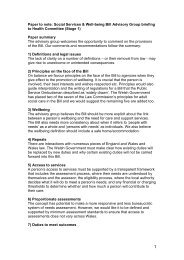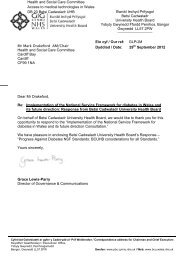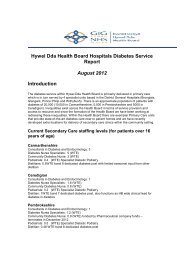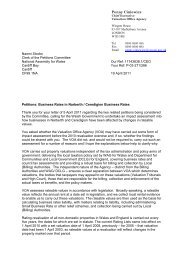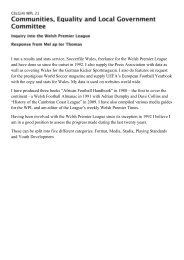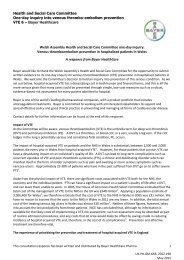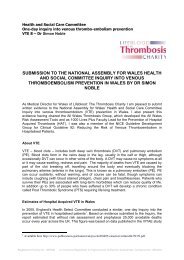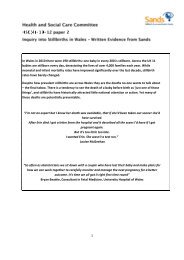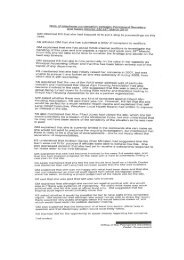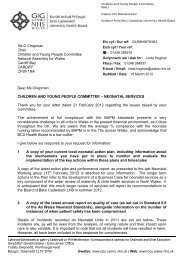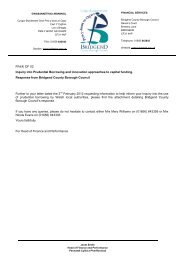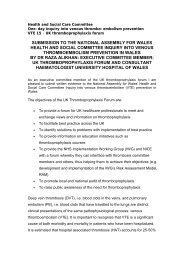Consultation Response - Media 12 - Cardiff University PDF 2 MB
Consultation Response - Media 12 - Cardiff University PDF 2 MB
Consultation Response - Media 12 - Cardiff University PDF 2 MB
Create successful ePaper yourself
Turn your PDF publications into a flip-book with our unique Google optimized e-Paper software.
from play-based to formal learning in England should be delayed until children<br />
turn six years old. Formal learning begins in English and Scottish schools at<br />
five years of age, while Wales and Northern Ireland already employ the playbased<br />
approach recommended in the review until children reach the age of<br />
seven. Most news outlets led with the recommendation to introduce playbased<br />
learning for young schoolchildren in England.<br />
As the content analysis showed, we found several stories where English<br />
education policy was reported as if it applied UK-wide. This story, by contrast,<br />
prominently and repeatedly drew attention to the differences between the<br />
devolved nations. Indeed, on some BBC news programming a ‘compare and<br />
contrast’ approach became the central narrative through which to introduce<br />
and explain the significance of the Cambridge primary school review.<br />
Overall, the primary school review story generated 22 items over the sample<br />
period, 19 of which were on BBC outlets, three on other outlets. There were<br />
nine television items: four on the BBC News Channel; two on each of the<br />
BBC’s News at One and News at Six; and one on News at Ten. BBC Radio<br />
featured eight items: three on both the Today programme and Radio 5 live<br />
Breakfast; and one each on PM and World at One. The story also featured<br />
twice on BBC online: as a routine UK news story; and a UK ‘Features, Views,<br />
Analysis’ item. ITV News at Ten, Channel 4 News and Sky News all produced<br />
one news item each about the story.<br />
Locating devolved relevance<br />
In the 19 BBC news items that reported the primary school review story, most<br />
made reference to the other nations where formal learning started at a later<br />
age. The examples below show how the introductions to the story on<br />
different BBC media clearly located the relevance of the review in England as<br />
opposed to the whole of the UK.<br />
Children in England shouldn’t start formal education until the age of six. That’s<br />
according to the largest review of primary education in England for 40 years. It says<br />
there’s no evidence that starting formal learning at 5 brings any benefits, and could<br />
even be harmful. The government called the review disappointing and out of date.<br />
(BBC News at One, 16 October 2009)<br />
An independent study of primary education in England has recommended that…<br />
(Radio 4 Today, 16 October 2009)<br />
The biggest inquiry into primary education in England for 40 years is suggesting that<br />
children shouldn’t start formal lessons until they’re 6... (BBC Radio 5 live Breakfast,<br />
16 October 2009)<br />
Children should not start formal learning until they are six, a review of primary<br />
education in England says. (BBC online UK News, 16 October 2009)<br />
36




